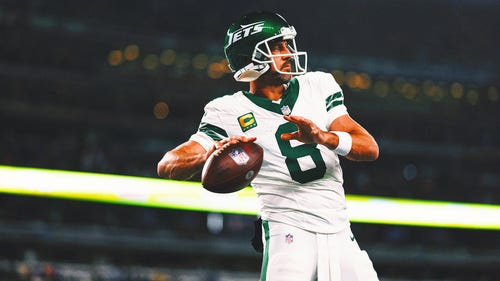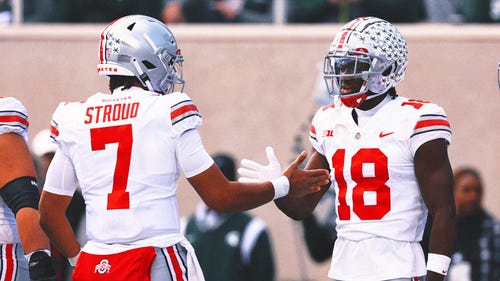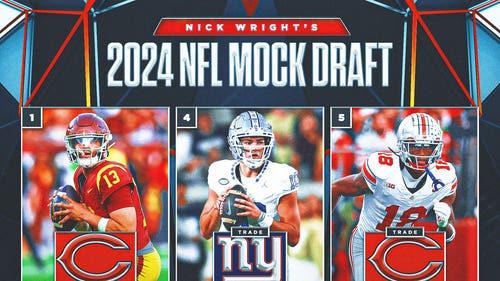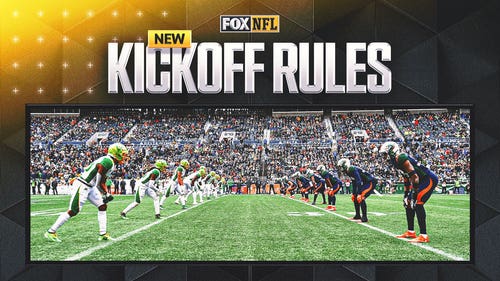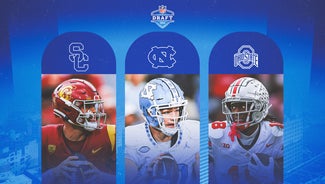
Refs blend nicely into background
Young people are in a condition like permanent intoxication, because youth is sweet and they are growing. — Aristotle
Say hello to Russell Wilson. Talk about growing up quick. Wilson, Seattle's unheralded rookie sensation, won the battle of kid quarterbacks as the Seahawks rallied from a 14-point deficit to defeat the Redskins 24-14 in Sunday’s wild card game at Washington.
Every man is the creature of the age in which he lives; very few are able to raise themselves above the ideas of the time. — Voltaire
But don't forget Ray Lewis. Baltimore's 37-year-old ageless wonder clearly doesn't know what time it is, because after missing 10 games with an injury, returned for his “last ride” with 13 tackles to lead the Ravens to an emotional 24-9 victory over Indianapolis and the NFL's other rookie-phenom quarterback, Andrew Luck.
Sunday's wild card games were much more entertaining than Saturday’s, and while there were many stars from all four teams, what you won't read much about is the officiating — and that's a great thing.
That's the life of an official. They are never going to read that they did a good job unless they read what I write from time to time. I understand how difficult their jobs are and I know when they perform well and when they don't.
The only time they usually read about themselves is when they make mistakes. But they all know that it comes with the territory.
Well, I'm here to tell you they did a good job this weekend and there was little to complain about. There was certainly a miss or two as there always is, but on Sunday, the officials fought to keep control in Washington and they had some tricky enforcements in Baltimore.
With that said, I'd like to take a look at two plays from each of Sunday’s games.
SEATTLE AT WASHINGTON
PLAY 1
The Situation: Seattle had the ball, first-and-10 at the Washington 39-yard line with 13:06 left in the second quarter. Washington led 14-0.
The Play: Wilson completed a 27-yard pass to Sidney Rice at the sideline. Originally the field judge Jon Lucivansky had ruled it an incomplete pass, but the line judge Mark Perlman overruled him for a completed catch.
My Take: This is what officiating should be all about. Two officials with different looks came together, had a quick discussion and Perlman overruled Lucivansky and made the right call. Both feet came down in bounds and when Rice landed out of bounds, the ball moved slightly, but he maintained possession with a hand controlling the ball throughout the process. When you reach this level of the NFL, officials need to step up, which is exactly what Perlman did. When I used to evaluate the ability of an official, I would take this type of action into consideration. Having the courage to stick your nose into the fray and overturn a fellow official's decision is a strong sign of an outstanding official.
PLAY 2
The Situation: Washington had the ball, second- and-goal at the Seattle 4 with 10:04 left in the first quarter. There was no score.
The Play: Washington quarterback Robert Griffin III attempted a pass to Joshua Morgan at the back of the end zone. It was a very close play where Morgan got one foot down in bounds, but the other foot came down just out of bounds. It was correctly ruled an incomplete pass.
My Take: Sometimes you get caught too close to a play, limiting the view an official gets. That's what happened to back judge Steve Freeman, who by the way is a former Buffalo Bills safety. Freeman had to look straight down at the feet and saw that the left foot, while on its way to the ground, never did touch as Morgan was forced out of bounds. It looked really simple and easy in slow motion replay, but trust me, it wasn't. By the way, prior to 2008, this would have been a touchdown as the force out rule was in effect. I supported the dropping of that rule in 2008 as it seemed unfair to basically penalize the defender, who legally blocked an airborne receiver out of bounds.
INDIANAPOLIS AT BALTIMORE
PLAY 1
The Situation: Baltimore had the ball, second-and-6 at the Indianapolis 11 with 11:02 left in the first quarter. There was no score.
The Play: Baltimore running back Ray Rice carried the ball for no gain, but fumbled the ball and it was recovered by Lawrence Guy. It appeared Baltimore's Marshal Yanda had wrestled the ball away from Guy, but the officials ruled that Indianapolis had recovered first.
My Take: Who recovers a fumble is not reviewable, unless it involves the end zone or a boundary line. The reason this rule was put in was because often in the field of play, loose balls go into piles and the ball might change hands two or three times. Officials are told to give the ball to the team that comes out of the pile, unless they see a clear recovery first, which they did on this play. Some might question whether Gay had possession of the ball, but the rule does also state that a player is down if he is on the ground with possession at the instant he is touched by an opposing player.
PLAY 2
The Situation: Indianapolis had the ball, second-and-10 at the Baltimore 43 with 31 seconds left in the second quarter. Baltimore led 10-3.
The Play: Luck dropped back to pass and was pressured by Baltimore's Dannell Ellerbe. Luck scrambled and threw the ball away as he was being brought down to the ground. The ball didn't get back to the line of scrimmage and Luck was called for a 15-yard intentional grounding penalty. And because there was less than one minute left in the half, a 10-second run off was enforced.
My Take: A lot to consider in this situation and referee Mike Carey and his crew handled it perfectly. To begin with, intentional grounding inside of a minute is one of the few live-ball fouls that carries with it a 10-second run off. To enforce it properly, you have to follow a three-step process, especially when it occurs near the end of the first half. The first step is to ask the defense, in this case Baltimore, whether or not they want to accept a 10-second run off. They might not if there is a chance that they might get the ball back before the end of the half. Baltimore decided to accept the 10-second run off. The second step involves going to the offense (Indianapolis) and asking them if they want to use a timeout instead of losing the 10 seconds. Indianapolis had one timeout left and it chose not to use it. That means the clock is reduced from 22 seconds to 12 seconds. The last part to consider is when to start the clock. Since Indianapolis decided not to use its last time out, the clock starts when the referee signals ready for play. Just as Carey was declaring the ball ready for play, Baltimore chose to call a timeout.
So while there were many excellent plays on the field, I'll close with a quote to sum up how I feel about the officials.
Reflect upon your present blessings, of which every man has plenty; not on your past misfortunes, of which all men have some. — Charles Dickens






































































































































